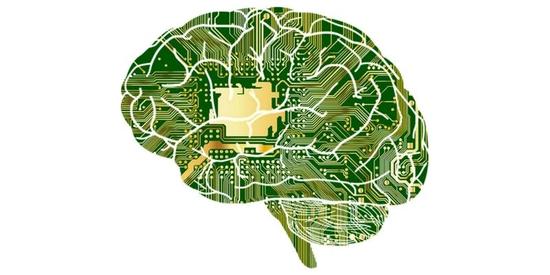How will artificial intelligence and deep learning develop in 2018?

This article is produced by NetEase Smart Studio (public number smartman 163). Focus on AI and read the next big era!
[Netease Smart News Dec. 30 news] As our daily life is increasingly intertwined with a variety of technologies, sometimes it seems that the future has arrived. However, technology is still evolving and artificial intelligence (AI) has taken center stage in this field. With the support of many advancements, artificial intelligence continues to stimulate the public's imagination of the future. Innovations such as Amazon’s Alexa, Netflix’s recommendation system, and SnapChat filters further contributed to this belief. These are excellent examples of artificial intelligence entering the field of personalization.
The most common components of artificial intelligence, and the "smart stars" in the artificial intelligence family, are "deep learning." Deep learning is a data learning model. In recent years, the long-term prediction accuracy standards have been improved. In addition to traditional predictive modeling, it has also made outstanding contributions in the field of speech recognition and computer vision. However, as we celebrate the arrival of the New Year, things will become more interesting. Let's take a look at the situation of deep learning (and the wider artificial intelligence) in 2018.

Convolutional neural networks (almost) everywhere
Convolutional neural networks are a complex learning model, which has the advantage of requiring minimal preprocessing or "cleaning up" of data. It is mainly used to "solve" visual image classification and processing. It is currently being applied to more cases.
The idea is that the visual world is synthetic, so images can be broken down into the most basic features. For example, an image of a landscape consists of a variety of objects; these objects consist of outlines and lines, which in turn consist of pixels. Covnets can identify these components and create layered abstract world concepts that make various identification tasks easier.

(Photo note: A convolutional neural network that recognizes an object in the image as a bird.)
Currently, Covnets is used in Facebook's photo tagging and facial recognition features. In 2018, we can expect that Covnets will be more widely used in the field of autopilot. Tesla's Model X is already using Covnets to implement autopilot related functions. More recently, companies like Quere.ai are using Covnets and have achieved remarkable success in the diagnosis of medical imaging. It is expected that the company will begin to find different applications for these highly accurate learning modes.
Artificial intelligence will enhance data security
Although machine learning and deep learning models have unprecedented prediction accuracy, some are still easily questioned. For example, in supervised machine learning, the model learns certain characteristics of the marker data, and the training and test data are assumed to come from the same data distribution. If the data is distorted in this hypothesis, the prediction accuracy of the model will be greatly affected. Take spam filtering as an example - If random text and images are added to the message, the message may bypass the spam detection system. This is why your inbox is full of spam, although there is a system that can stop it.
Security giant McAfee believes that taking into account digital security, ransomware and other digital threats (such as "WannaCry," which panics the global community) are increasingly using machine learning and deep learning technologies in 2018. Specifically, these models will threaten the detection model, learn from the defensive responses of the detection model, and use the discovered loopholes to corrupt the detection model faster than the defender fixes the loophole.
To defend against these technologies, McAfee's engineers have been working on machine learning and building an advanced defense research team to create solutions to these vulnerabilities. The only way to really resist this kind of attack is to establish a more universal learning model and even find the tiniest exception. In this regard, some interesting research is in progress.
in conclusion
In the past two or three years, artificial intelligence and deep learning have seen explosive growth in the public domain and some exciting products have been introduced. In 2018 and in the coming years, they will increasingly appear in our daily interactions, especially in the field of mobile applications.
With the rapid development of mobile hardware, it will be able to support complex deep learning tasks. For example, Apple's iOS 11 supports CoreML, a machine learning toolkit for iOS developers. In the future, developers will be able to deploy applications that support text prediction and image recognition (such as SnapChat) without any knowledge of machine learning.
It is clear that the future of artificial intelligence and deep learning is vibrant and promising. We see how fast this change and progress are. Only time can give us the answer. Therefore, as the new year unfolds, let's wait and see how it performs in this segment.
(Selected from: yourstory Author: Uday Keith compile: NetEase see foreign intelligence platform compiler revision: nariiy)
Pay attention to NetEase smart public number (smartman163), obtain the latest report of artificial intelligence industry.
2G GPS Tracker,2G GPS Trackers,3G GPS Tracker, 2G Vehicle GPS Trackers,3G GPS Trackers
eSky wireless Inc , https://www.eskygpsiot.com
